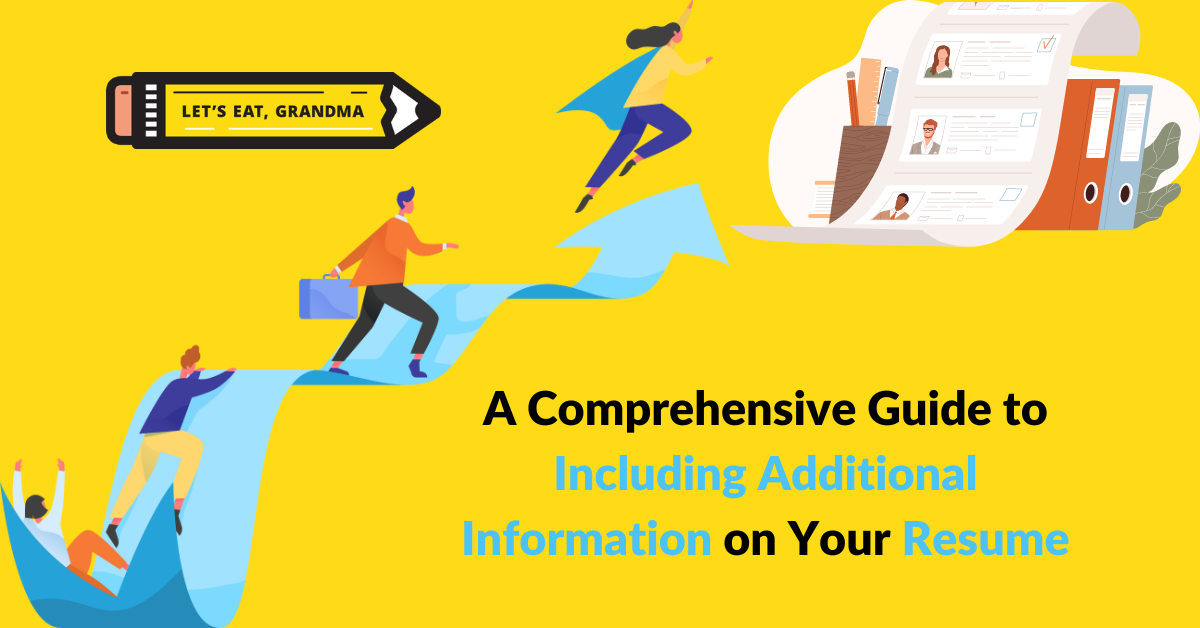If you’re familiar with resumes, you probably already know the basic elements you need to include to convey your experience and qualifications. However, if you limit yourself to these areas, you might be leaving off important details that can give you an advantage in your job search.
What should a resume include?
First let’s recap the key components of a resume. Every high-quality resume must cover the basic categories of information you need to get across to the recruiter or hiring manager (regardless of your career level, industry, or type of job search):
- Contact information (your name, location, phone number, email, and LinkedIn)
- Summary of qualifications
- Relevant skills
- Professional experience
- Education
Anything outside of these basic categories, such as certifications, awards, and professional affiliations, are considered additional information. Including these can enhance your resume by expanding on your professional life outside your day-to-day jobs. It helps demonstrate your drive to gain new knowledge, engage in your industry, or connect with your community. It can fill in the gaps of your experience and demonstrate your well-rounded interests.
Additionally, including additional experience on your resume can improve your ATS reading, as it gives you more opportunities to utilize keywords that the system may be looking for.
The best way to include additional information depends heavily on your job search situation, the position description, and your professional history. It may sound complicated now, but once we dive in deeper, you’ll know exactly how to leverage your additional information to secure that interview.
If you have additional experience on your resume, but aren’t sure if it’s hurting or helping, you can find out with a free resume critique.

Photo by Christina @ wocintechchat.com on Unsplash
Examples of additional information to include on your resume
Each career is a unique compilation of skills gained through practical experience and sought out knowledge. Outside your key components, the most common examples of these are as follows:
Certifications & Licenses
Continuing your education throughout your career is impressive! If you’ve pursued more training or qualifications to strengthen your expertise in the field you’re applying to, be sure to include these. Not only do they show your capacity for learning new things, they also verify the skills you include on your resume. Certifications and licenses can make a more impactful impression than your professional experience and education alone, especially if you’re gearing up for a career change.
Language Proficiency
Your language skills can help set you apart from other applicants. But only include them if you are prepared to put your skills to work – you don’t want to get caught stumbling through a language you barely remember from college courses.
Technical Skills
Technical and software proficiencies are some of the most prominent hard skills that recruiters look for. It’s important to list any technical skills you have that match a job description (and match the exact phrasing and spelling of the skill). Make sure your resume is focused, however: If you have extensive tech experience and find yourself with a huge skills section, go over the job description again to be sure you prioritize the software and programs they’re looking for.
Professional Affiliations & Workshops
Industry conferences, professional affiliations, and workshops show you are dedicated to your industry and seek to develop your skills and knowledge outside the workplace.
Publications & Projects
If you are in a creative field such as filmmaking or writing, you can convey your skills through the projects you’ve led and completed. Alternatively, if you completed extensive research projects for your industry, you can demonstrate your expertise and recognition by including the publications you’ve been included in.
Awards & Honors
Personal accomplishments also help show the scope of your achievements, and can be distributed throughout all of the sections on a resume. These often include awards or honors for having a positive impact on a business, company culture, or industry.
Volunteer Work & Board Positions
Board leadership positions and volunteer work you’ve done can show how you’re using your professional skills to improve your community. Just make sure to be judicious when deciding what to include: Your six months of experience walking dogs for your local shelter four years ago doesn’t add much to your business analyst resume. (But add it to LinkedIn if you want!)
Determining relevant additional information to include
To decide what additional information is worth including on your resume, you first need to determine If it’s relevant to your job search.
For example, if you’re a new graduate, it makes sense to include your involvement with a club associated with the industry you’re applying to. However, if you’ve been in the same field for decades, and aren’t changing career paths, there’s no need to add your undergrad extracurriculars.
One of the best ways to determine relevance is to read the job requirements and employer preferences. Before you submit your resume, look at both the job description and the company profile. The more information you have about what they’re looking for, the easier it will be to determine what to include.
If you don’t at least carefully read the job description before submitting your document, you may overlook an opportunity to include a perfect example of your qualifications, and even clutter the resume with information that has nothing to do with the position. It takes a bit of extra work to customize your resume for each application, but it can pay off in the long run.
Showcasing volunteer work and professional affiliations can help take the place of professional experience if you are new to the field. Not only can volunteering help your career transition, but it also shows that you care about the community and are eager to get involved. This can be incredibly helpful if the company you’re applying to fosters a culture that encourages philanthropy.
Another important thing to do when drafting your additional information is Identify your transferable skills and experiences. These are proficiencies that are applicable to multiple fields, and thus stay relevant no matter what direction your career path takes you. For example, if you earned a certification or completed training in leadership, you can include it for every position you apply to.
Tailoring additional information for different scenarios
Each type of job search comes with unique challenges. To get the most out of your additional information on your resume, you need to consider your situation and tailor it accordingly.
For entry-level resumes, you can showcase academic achievements or internships, as well as organizations you actively participated or held a leadership role in. New jobseekers with little relevant job experience can rely on their college accomplishments to prove their dedication and skills. Good grades and consistent engagement in industry-focused classes and clubs show that you are familiar with the line of work you’re pursuing. If you completed an impactful project as part of your degree that’s relevant to the job duties, you can also include this to demonstrate your subject expertise.
For career changer resumes, you should highlight your transferable skills and relevant coursework from recent or past educational experiences. Be sure to include any professional affiliations you’ve joined or certifications you earned in preparation for your new line of work.
Resumes for experienced professionals should demonstrate ongoing professional development through additional information such as affiliations, workshops, awards, and achievements. Everything included should be directly relevant to your industry and emphasize your capabilities in your field.

Photo by Christin Hume on Unsplash
Structuring and formatting additional information on your resume
After you’ve determined what information you’ll include, you need to choose the appropriate section for each item. Your impressive and dynamic background won’t do you any good if it’s formatted incorrectly and can’t get through ATS.
All of your information should follow standard formatting guidelines for readability, and any additions should be structured the same way as the rest of your resume for consistency.
It should also be prioritized and organized effectively and by relevance. If you have several different types of additional information to include, list the items that will be most impactful to the job you’re applying to.
If your job search is traditional, the additional information should go after the key components. However, if you’re switching industries and haven’t had any positions in the field, your recent certification or education you’ve earned in preparation for the change should be at the top. This will show your qualifications right away, instead of being buried under less relevant professional experience.
Dos and don’ts for including additional information on your resume
Before you submit your resume, use this quick guide to check your additional information and make sure you’re putting your best foot forward.
Do: Ensure the additional information is relevant, concise, and specific.
Do: Check to see that everything you included is applicable to the job description and is formatted consistently with the rest of the document.
Don’t: Include outdated information that doesn’t add anything substantial to your document. Overloading the resume with older roles will only stretch the length and make it harder for recruiters to parse out the most important details. Plus, going back too far in your career history may put you at risk for ageism.
Don’t: Add your hobbies or other non-career-related personal pursuits. There’s plenty of room on your LinkedIn to go into your interests – don’t clog the resume page with your passion for hiking.
Conclusion
Adding additional information to your resume can be tricky. You have to think carefully about what you should include, and be sure the content is worth the space it takes up. When chosen, written, and formatted correctly, additional information can bring your resume (and your job search) to the next level.
Ready for more job search help?
Sign up for a free Senior Writer Resume Critique to see what’s holding you back from landing interviews. One of our top professional resume writers will give you personalized feedback on the top 3 items you can improve based on our expert practices!




